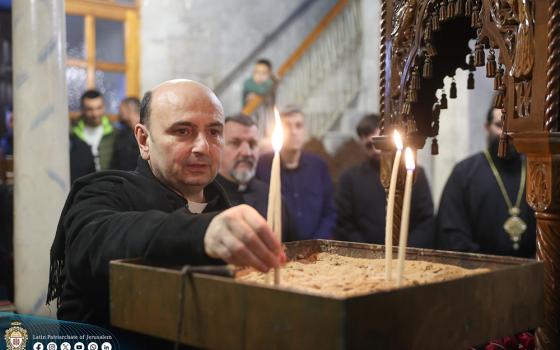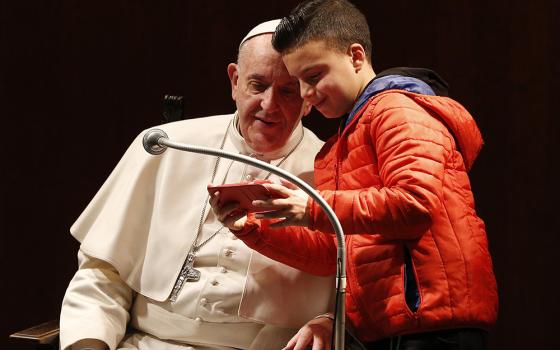This just in the e-mail box. We learned Monday Cleveland the diocese would be the subject of an apostolic visitation this week. John M. Smith, bishop emeritus of the Trenton, N.J., is doing the visiting. We hope he gets a chance to talk with the folks at FutureChurch. They have a lot of good things to say.
Cleveland, Ohio -- FutureChurch, welcomes Apostolic Visitor, Bishop John M. Smith, Bishop Emeritus of Trenton, N.J. to the diocese of Cleveland. We deeply appreciate the Vatican’s concern for the thousands of Cleveland Catholics who have been alienated, wounded and displaced by the untimely closure of their vibrant parish homes. We request that Bishop Smith’s final report be made public.
The fact that this examination is taking place in response to parishioners' petitions for redress of grievances - in the form of thousands of letters to the Holy See and to the Apostolic Delegate in Washington, D.C. - indicates the need for a more systematic, continuing and effective way for bishops and others in positions of authority in the Catholic Church to be held accountable to the people for their actions, inaction and decisions.
FutureChurch leaders met with Bishop Lennon in January 2007 asking him to employ alternative staffing models approved by church law to keep solvent parishes open in a time of fewer priests. Forty percent of merged parishes lose parishioners. Studies indicate that those kept open with parish life coordinators were more likely to remain vibrant. (see http://www.futurechurch.org/sopc/CPPDfinal.pdf
At the time of the closings in March 2009, FutureChurch pleaded with the diocese to work with parishioners appealing the closure of their parishes to develop a plan for future viability. We asked the diocese to allow a reasonable period of time for the plan to work before ordering such parishes to close.
“In a number of cases the Bishop went against the recommendations of his own Vibrant Parish Life Committee, diocesan staff, and the Cleveland presbyterate,” said FutureChurch Executive Director, Sr. Christine Schenk. Schenk named St. James Parish in Lakewood and St Peter’s Parish in downtown Cleveland as examples. “FutureChurch is gravely concerned when vibrant, solvent and apostolically effective parish communities in poor urban areas are told they must close or merge. These parishes provide stability and much needed services in needy neighborhoods.”
“Even sadder was the closing of financially challenged communities such as St. Cecilia’s and Epiphany that have given outstanding service to inner city neighborhoods. We should do what other dioceses have done and begin an annual collection for inner city parishes, ” said FutureChurch board member Bill Wisniewski.
FutureChurch’s Save Our Parish Community project provides advocacy support and resources to struggling parishioners nationally and worldwide, who are appealing to their bishops and the Vatican, to keep their vibrant, solvent parishes open. (see http://www.futurechurch.org/sopc/
According to a 2008 Center for Applied Research in the Apostolate study, half of the 19,302 active diocesan priests plan to retire by 2019. Since the US Church is ordaining about 380 new diocesan priests each year. In just eight years, there will be only 13,500 active diocesan priests to serve 18,000 U.S. parishes, presuming ordinations remain constant, as they have for over a decade. Currently, FutureChurch is conducting an Open Letter From the People of God to the Bishops of the United States that asks the Bishops to begin to address the crisis of the shortage of priests. (see http://www.futurechurch.org/fpm/optcel/openletter/)
[FutureChurch is an independent non-profit national coalition of 3500 Catholics seeking changes that provide all Roman Catholics the opportunity to participate fully in Church life and leadership. It strives to educate fellow Catholics about the seriousness of the priest shortage, the centrality of the Eucharist (the Mass), and the systemic inequality of women in the Catholic Church.]



